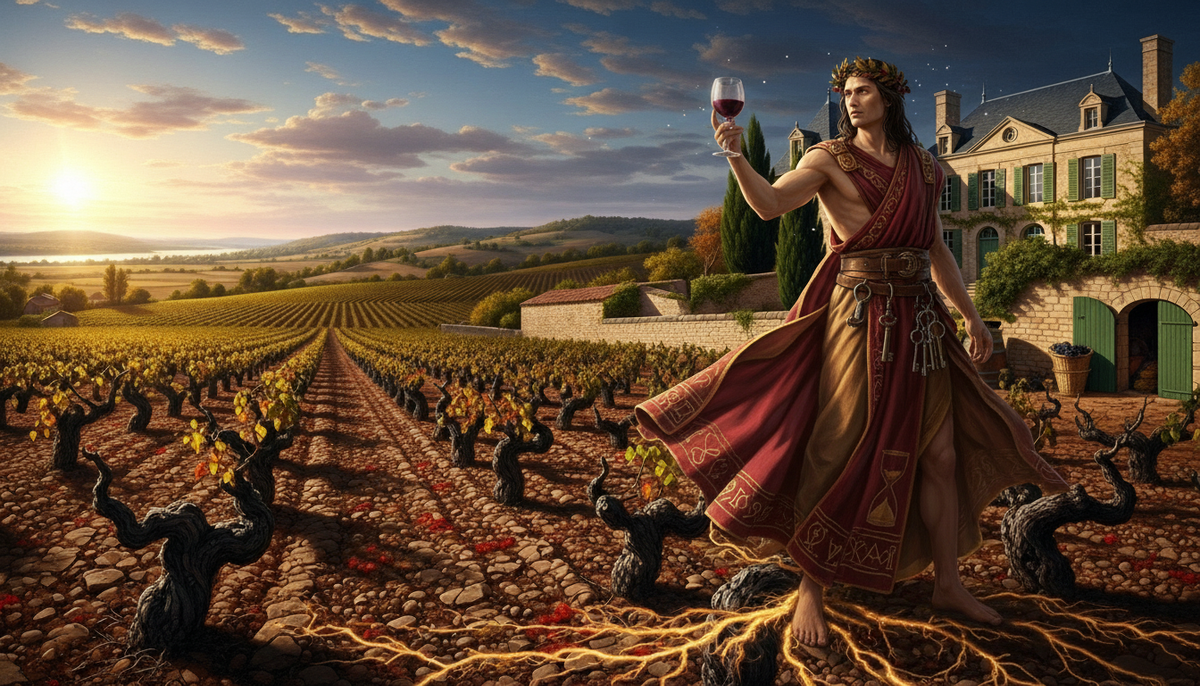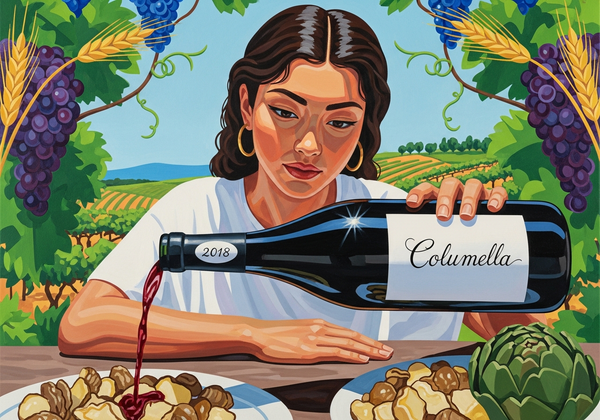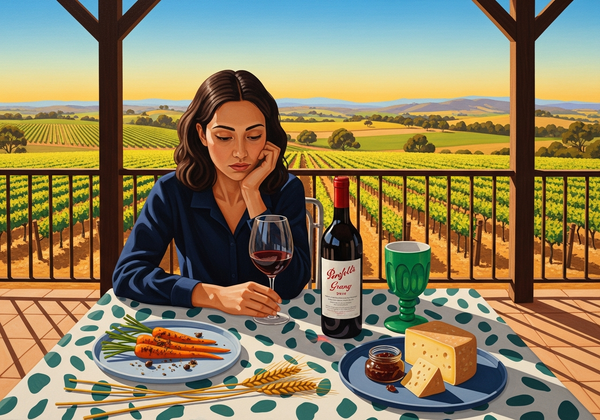The Land That Refused to Yield: The Story of Château Trotanoy
Explore the story of Château Trotanoy — once dismissed as “too difficult” to cultivate, now one of Pomerol’s most revered wines. Discover how stubborn clay, patient winemaking, and timeless terroir forged a Bordeaux icon.

How a stubborn patch of clay forged one of Bordeaux’s most profound wines — and why patience, not power, is its greatest strength.
I. Prologue: Where the Earth Rules the Vine
There are vineyards where wine is made in the cellar — where oak, technology, and human ambition shape its final form.
And then there are places like Château Trotanoy, where wine is forged in the soil itself — where the land is so commanding, so unrelenting, that even I, Liber, have learned humility before it.
“Trop ennuyeux,” they once called this land — too difficult, too stubborn to cultivate. And yet from that very obstinacy was born one of the most profound, age-worthy, and soulful wines in all of Bordeaux.
Trotanoy is not a wine that shouts. It does not chase trends. It speaks in a deeper voice — patient, powerful, and eternal — the voice of the land itself.
II. The Origins: A Name Born of Difficulty
The name Trotanoy itself is a relic of its origins. In the old Gascon dialect, “trop ennuyeux” — “too annoying” or “too much trouble” — was how 18th-century growers described this stubborn patch of earth. The soil was dense with clay and scattered with chunky iron-rich gravel, making cultivation slow, laborious, and unpredictable.
And yet, that same soil — a mosaic of deep clay, gravel, and crasse de fer (iron deposits) — was precisely what made it so extraordinary for Merlot, Bordeaux’s most sensual and expressive grape.
By the late 1700s, the property was already recognized for producing some of the most profound wines in Pomerol, rivaling those of its more famous neighbors.
III. 19th Century: Trotanoy Takes Its Place Among Legends
Through the 19th century, Trotanoy’s reputation grew steadily. Its wines were known for their depth and longevity — darker, denser, and more structured than many Pomerols, yet still rich with the plush fruit and velvety texture for which the region is celebrated.
Merchants and collectors prized Trotanoy for its backbone — a wine that, even in youth, hinted at the power it would reveal decades later. It was never the loudest wine, but always one of the most respected — the kind of bottle that quietly outlasted its peers in the cellar.
IV. The Moueix Era: A Sleeping Giant Awakens
The modern history of Château Trotanoy truly begins in 1953, when it was acquired by the legendary négociant Jean-Pierre Moueix — the man who would go on to shape much of Pomerol’s destiny. Moueix recognized in Trotanoy a potential that few had fully realized — a vineyard capable not only of greatness but of timelessness.
Under the Moueix family’s stewardship, Trotanoy was revitalized. Vineyard work became more meticulous. Yields were deliberately lowered to concentrate flavor. Winemaking was refined to emphasize the estate’s natural power while preserving its sensuality and elegance.
And, as the decades passed, Trotanoy’s legend grew. By the 1960s and 1970s, it was considered one of Pomerol’s three crown jewels, alongside Pétrus and Lafleur — a trinity of wines that defined the appellation’s soul.
V. The Terroir: A Study in Strength and Soul
At the heart of Trotanoy’s greatness is its terroir — one of the most unique in Pomerol.
- Deep Clay: Dense and moisture-retaining, it gives Merlot its plush texture and extraordinary concentration.
- Gravel and Iron: These layers provide structure, minerality, and longevity.
- Location: Situated on the plateau of Pomerol, just southwest of Pétrus, the vineyard benefits from optimal drainage and exposure, allowing grapes to ripen slowly and evenly.
The result is a wine of remarkable duality — simultaneously opulent and structured, sensual and stoic. It is often described as the most masculine of Pomerols, yet its power is never brutish; it is disciplined, refined, almost regal.
VI. The Wine: Patience Rewarded
To drink Trotanoy young is to glimpse its potential — a dark, brooding wine bursting with black plum, cassis, truffle, and warm earth, wrapped in dense, muscular tannins. But to truly understand it, one must wait. With age — often 15, 20, even 30 years — the wine transforms, revealing layers of cigar box, cocoa, forest floor, iron, and dried rose.
It is not a wine for impatience. It is a wine for those who understand that greatness takes time — just as the vines themselves took centuries to master the stubborn soil beneath them.
VII. Trotanoy Today: Quiet Mastery
Today, under the continued care of the Moueix family and Christian Moueix’s successors, Château Trotanoy remains one of the most revered names in Bordeaux. Production is small — the estate covers just 7.2 hectares — and demand is fierce. Each release is allocated to collectors who understand that Trotanoy is not a wine for immediate pleasure, but for posterity.
In a world that often prizes immediacy and spectacle, Trotanoy stands as a monument to patience, precision, and permanence. It is a wine that will outlive its drinkers — and that is exactly the point.
VIII. Liber’s Reflection: The Power of Refusal
I, Liber, have always admired the stubborn — the people, the soils, the vines that refuse to bend to convenience. For it is in that refusal that character is forged.
Château Trotanoy is one of those rare wines that does not seek to seduce you — it asks you to earn it. It is the taste of centuries condensed into a single glass, the flavor of a place that was once “too difficult” and is now simply irreplaceable.
To drink Trotanoy is to taste the deep heartbeat of Pomerol — the gravity of the land, the patience of time, and the truth that the greatest rewards are not given freely. They must be waited for.
🍷 Final Benediction
Some wines are made to charm.
Trotanoy was made to endure — a masterpiece born from stubborn earth and infinite patience.





